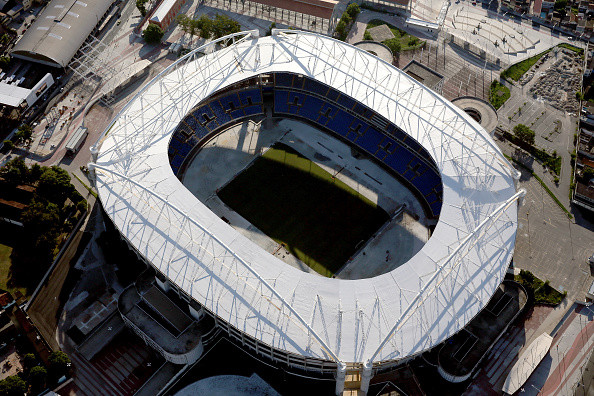Rio Olympics 2016: Poor ticket sales add to Summer Games woes

Authorities in Brazil have faced numerous roadblocks in the run up to the 2016 Rio Olympics, but the poor sale of tickets could be one of the biggest challenges for the South American country. With just four months remaining for the mega sporting event, only half of the available tickets have been sold so far.
With the Zika virus outbreak, high crime rate and political crisis overshadowing the 5 August opening ceremony, it seems like sporting fans are refraining from booking tickets for the Rio Olympics. According to Minister of Sport Ricardo Leyser, the government could buy tickets, especially for the Paralympics, and give them to public schools to boost audiences.
Leyser, replaced George Hilton as Brazil's minister of sport, said in an interview with Folha newspaper that he was working on ways to boost purchases, as well as stir up excitement within the country.
"There is a perception that the Brazilian population has not yet woken up for the games. We are going to work energetically on this because it's still not in people's heads. We need to sound an alert so that people remember this event and go and buy tickets", Leyser was quoted as saying by Fortune.com.
"The ministry is extremely busy with day to day activities. We have to complete works, the ministry is working and ready."
This is not the first time that interest in the Olympic Games is low. The Sochi Winter Olympics in 2014 witnessed thousands of tickets going unsold weeks before the event, while a week prior to the 2008 Olympics in Beijing, one million tickets remained unsold. The London Olympics in 2012 also witnessed issues with empty seats at some events.
Authorities would be more worried as the country is in the midst of its worst recession in 25 years, which would further escalate the issue as locals would not be able to afford tickets. Further, the outbreak of the Zika virus has also hurt the country's economy and not many people are expected to travel to watch the Games.
Such has been the impact of the outbreak that the World Health Organization (WHO) has declared the virus "a public health emergency of International concern". Despite these concerns, Brazil has assured that all precautions will be taken, with major tourist spots and locations being inspected daily during the games to ensure there are no puddles or breeding grounds for mosquitoes.
© Copyright IBTimes 2025. All rights reserved.





















